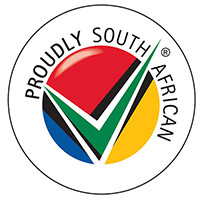When one of our own captures the attention or imagination of the world we immediately sit up and take note, congratulating not only that person but ourselves for acknowledging their achievements.
We stood up and cheered when Charlize Theron won an Academy Award in 2004 and again in 2006 when Tsotsi took the Best Foreign Language Oscar.
Trevor Noah's gig as host of the Daily Show in 2015 received resounding applause from home and last week the accolades poured in for Palesa Mokubung's label, Mantsho.
Although she is already supported by a handful of discerning South Africans, Mokubung has until now had only one modest outlet in Melville, but all of a sudden we recognise her only because she has been announced as the first African designer to be asked to collaborate with global retail giant H&M, who will launch her range in 60 stores worldwide from August.
While it's right and proper that we should acknowledge and celebrate these achievements, holding gala dinners and extending invitations to meet the President, it seems that we jump on the proudly South African bandwagon (using lower case 'p' deliberately) only after the rest of the world has given us their consent to do so.
Our reluctance to embrace our own products and people even when they are excellent and represent quality, skill and value is our own particular South African shortcoming.
We are unable to demonstrate confidence in our own authenticity until we have a universal stamp of approval.
For Proudly South African this translates into choosing imported goods over locally manufactured items, including shopping in our droves in a store which until now has demonstrated no appetite for South African-manufactured garments, whether designer or off the peg. (We nevertheless obviously welcome and acknowledge H&M's new willingness to look for local content.)
Home-grown excellence is all around us - but uncelebrated and unsung heroes struggle to get themselves noticed here at home and must live in hope of an international endorsement before we claim them and, more important, before we invest in and support them.
In our own way, that's what the Proudly SA tick of approval, which is the membership logo, seeks to achieve - to show South Africa and the rest of the world that this is a product worth investing in, whether it's a cap, a car or industrial equipment that has met with our membership criteria of value and quality.
It is incumbent on each and every one of us to support and report excellence as and when we find it, here and now.
Don't wait for someone else to "discover" your favourite designer, or local brand of coffee, or artist. Social media is a powerful tool and we can use it to spread the word long before an international star or chain store catches on to South African excellence.
Buying locally manufactured goods and products acknowledges national excellence and demonstrates an innate confidence in our ability to be as good as if not better than international equivalents.
But South African consumers can buy locally manufactured goods: products ranging from industrial and clothes designers to food and beverage manufacturers, creators of products from timber and steel, media houses to printers and stationery suppliers, industrial detergent developers, spas and cosmetics manufacturers, furniture and home accessories producers, hotels, lodges and transport companies, airlines, wet wipes and diapers - the list is endless.
Most of these companies are unknown in the global marketplace and even in our own backyard, but if we just had the courage of our own convictions and didn't have to wait for international approbation to tell us who or what South African is worthy of our attention, we would boost their profile here at home, keep them in business and sustain the jobs they create in the process - including creating more jobs.
AKA sang about the Baddest in his hit song of the same name, and South Africa has entrepreneurs, innovators and entertainers that are indeed the baddest in their respective industries.


